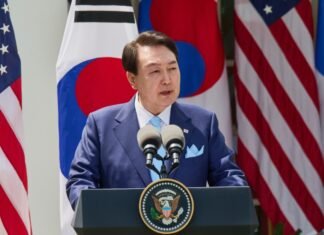In a significant and controversial move, the Trump administration has announced the revocation of Harvard University’s ability to enroll international students. This decision, made public by the Department of Homeland Security, has sent shockwaves throughout the academic community and raised pressing concerns about the future of international education in the United States.
Under this new directive, international students currently attending Harvard find themselves in a precarious position. The administration has mandated that these students must either transfer to an institution that still retains the right to accept international enrollees or face the risk of losing their legal status to remain in the country. This sweeping change is not just a logistical challenge for the students but also a blow to the diversity and global perspective that international scholars bring to U.S. colleges and universities.
Harvard University, long considered one of the leading educational institutions in the world, prides itself on attracting a diverse student body from across the globe. The presence of international students enriches the campus culture, fosters innovation, and enhances the overall academic experience for all students. By implementing this policy, the Trump administration appears to be narrowing the pathway for these students, ultimately diminishing the educational fabric that institutions like Harvard have cultivated over centuries.
This measure appears to be part of a broader trend during the Trump presidency, which has often focused on immigration and border control as key issues. Detractors of the policy argue that it reflects a national sentiment that seeks to limit the influence of foreign students and scholars at American universities. Critics worry this could deter future international students from pursuing their education in the U.S. and may encourage them to consider opportunities in countries with more welcoming policies.
In light of these developments, Harvard and various other educational institutions are reportedly mobilizing to respond to this challenging situation. The university has expressed its commitment to its international students and is likely exploring options to help them navigate this newfound uncertainty. Students may find themselves facing tough decisions about their academic futures.
The implications of the Trump administration’s policy extend beyond individual universities and students. A decline in international student enrollment could have far-reaching consequences on the U.S. economy. International students contribute billions of dollars to the economy each year through tuition payments and living expenses. Moreover, a decrease in this demographic could hinder U.S. institutions’ competitiveness in a global educational marketplace.
As the landscape of higher education continues to evolve, influential voices are emerging in opposition to the decision. Advocacy groups and educational leaders are pushing back against the policy, calling for a reevaluation of the regulations that govern international student admissions. They argue that a more inclusive approach not only benefits educational institutions but also promotes cultural exchange and enhances the global standing of the United States.
In summary, the Trump administration’s decision to revoke the right of Harvard University to enroll international students marks a critical juncture for education in America. As students and institutions grapple with the implications of this policy, the conversation surrounding immigration, education, and cultural exchange will undoubtedly continue to unfold, highlighting the importance of fostering a diverse and inclusive academic environment.






